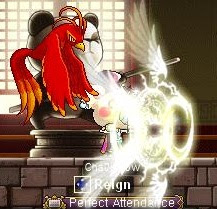I was primary 4 back then, and it was always a joy to visit my great grandmother in Malaysia. Back then, she was already 95 years old. From the outlook, however, she was a strong, fit, old woman who could even climb flights of stairs and go to nearby shops to buy food for herself. She lived on her own, but it seemed like she was even more independent than my grandparents who were already plagued with high cholesterol amidst many other illnesses.
Every time I went back there, it was as if I could expect loads of biscuits waiting for me. It was as if I could expect a thick, red, envelop of money would be waiting for me. It was as if I could expect her arms around my back and receive many dear kisses from her. It was as if I could expect to hear her stories about how she suffered as a veteran of world war 2.
This I believe: I would be able to give back to her one day.
All went well, and as she neared a 100 years old, she still looked as fit as ever. However, There's a harsh reality - nothing lasts forever. One has to be ready to grow, and grow fast, for suddenly, I learnt of her fall when climbing up the steps one fine day. I was traumatized.
Seconds seemed to last like eternity. I could not bear the thought of how she was as thoughts raced through my mind. Tears trickled down my cheek as if it were a breach in a dike. At the current state, my grandparents rushed back to Malaysia to have a last glimpse of their mother. However, I was told to stay behind as there was nothing else much to do already.
Back there, I called my grandparents. I figured, if she were to wake up, I would like to have a talk to her. I prayed against all hope that it would be this way. Her unmoving body, my grandparent's unwavering love, the doctor's words were all I had.
This I believe: I had to fulfill her last wish: I had to give back to her one day.
And that special wish that she had was all I could do now. It was as if that was my life's aim, my last goal that I must and had to achieve :" 用功读书,不要放弃".









